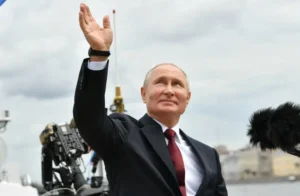As its war with Ukraine rages, the Russia’s emphasis on food security as a domestic and international tool is not a novel concept.

A paper by Hebrew University researchers determined that the Kremlin’s food security policies have provided the dual benefit of shielding Russia from Western sanctions and providing political control over countries that import grain from the giant post-Soviet state – not just amid their invasion of Ukraine, but throughout Russian and Soviet history since 1917.
While Russia has been in the headlines for its politicization of food supply – specifically grain exports, Russia and Ukraine being two of the globe’s largest exporters – the Russian emphasis on food security as a domestic and international tool is not a novel concept.
The paper, published in the Journal of Democracy in July, outlined how many major developments in Russian and Soviet history since the 1917 revolution have either been driven by or closely associated with the availability – or lack – of food.
In February 1917, bread shortages, skyrocketing food prices, and subsequent food riots in the capital city of Petrograd sparked rebellion that led to the Russian Revolution and ended the monarchy. By the summer, however, food was once again scarce – leading to the Bolshevik Revolution that October.
While food scarcity gave rise to the USSR and communist rule, it may have also been partially responsible for their downfall: The Soviet Union issued a 29-year moratorium on food price increases in 1962 after food price protests, which led to a stark rise in grain imports. After the USSR invaded Afghanistan in 1979, the United States – Russia’s primary source of grain at the time – declared a grain embargo on the Soviet Union. President Mikhail Gorbachev’s plans to “revitalize communism” in the 1980s led to food rationing and bread lines.
